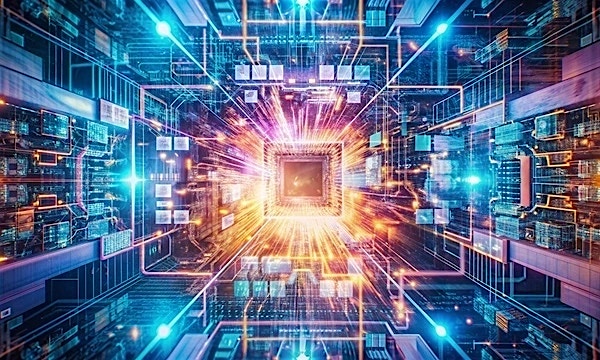Generative AI has been a hot topic of discussion lately with ChatGPT and other AI bots displaying wide-ranging capabilities. From students using generative AI to help write essays to large technology companies utilizing it to improve customer experience, the possibilities of AI tools are being tested..
Generative AI and other foundational models are taking assistive technology further, reducing development time of applications and allowing nontechnical users to utilize powerful capabilities.
What is Generative AI?
Generative AI is a category of AI algorithms that can generate new outputs based on data they train on. In contrast to traditional AI systems designed to recognize patterns and make predictions, generative AI creates new content. That new content can take the form of images, written text and audio.
To create new content, generative AI uses deep learning called generative adversarial networks (GANs). A GAN has two neural networks: a generator to create new data and a discriminator to evaluate data. The two networks work together as the generator improves its outputs based on feedback from the discriminator until it generates content indistinguishable from real data.
CEO and Managing Director at HCLTech C. Vijayakumar recently commented on the impact generative AI will have: “Generative AI is taking AI to new levels, in terms of content creation and customer service, which is a huge industry. ChatGPT is going to create an ecosystem around itself, which will drive a new era of innovation and disrupt traditional industries.”
What are its capabilities?
One of the biggest concerns as generative AI grows is automation impacting the workforce and replacing employees by performing tasks previously done by humans. According to McKinsey, generative AI is set to change interaction labor, such as customer service, in a way that approximates human behavior closely and imperceptibly.
Further, generative AI is not just creating new content, but doing so creatively. It leverages inputs and experiences to help it “learn” new information to generate entirely new content. While the technology may not replace human creativity today, it can unleash more creativity into the world by assisting humans with starter ideas.
Generative AI models are in the early days of scaling, but applications across functions for businesses have already begun, including marketing and sales, risk and legal, IT and engineering, operations and research and development.
Generative AI’s nascency
While technology has made huge leaps, it is still nascent technology that will require caution from company executives. There are still various practical and ethical issues that must be resolved. For example, generative AI results can be wrong. ChatGPT can confidently generate entirely inaccurate information in response to a user question with no built-in mechanism to challenge the result. Filters are also not yet effective enough to catch inappropriate content.
Among other ethical and practical concerns are systemic biases needing to be addressed and individual company norms and values aren’t reflected. Organizations will need to adapt generative AI to incorporate their culture and values. Additionally, intellectual property questions are debatable because when a generative AI model brings forth a new product design or idea based on a user prompt, who gets the credit and owns the output?
An AI skills shortage needs to be addressed to build these platforms out. HCLTech CEO and Vijayakumar recently said that one billion roles will need to be reskilled to deal with the AI skills shortage. Reskilling programs, like HCLTech’s TechBee program which teaches students new technologies and skills, are becoming more common practice.





